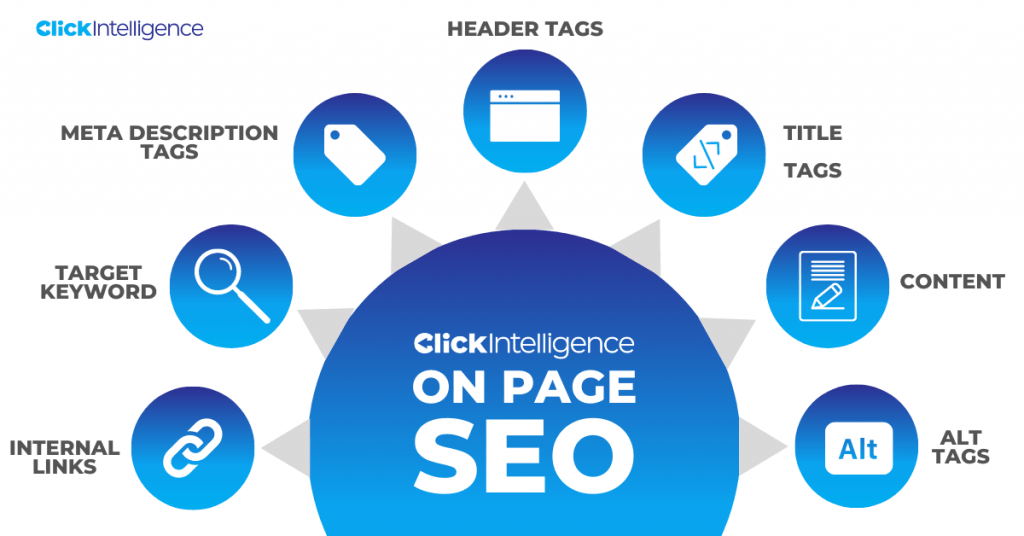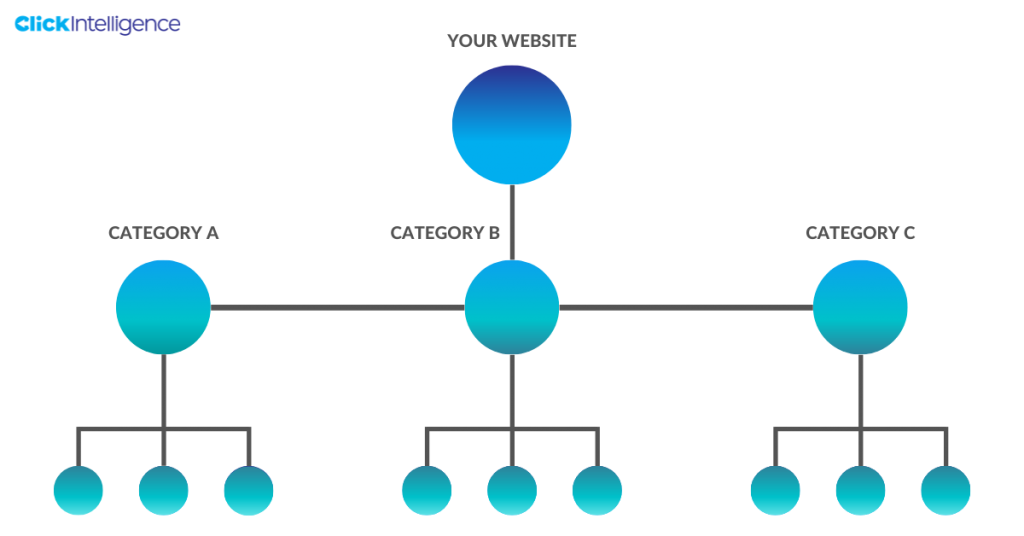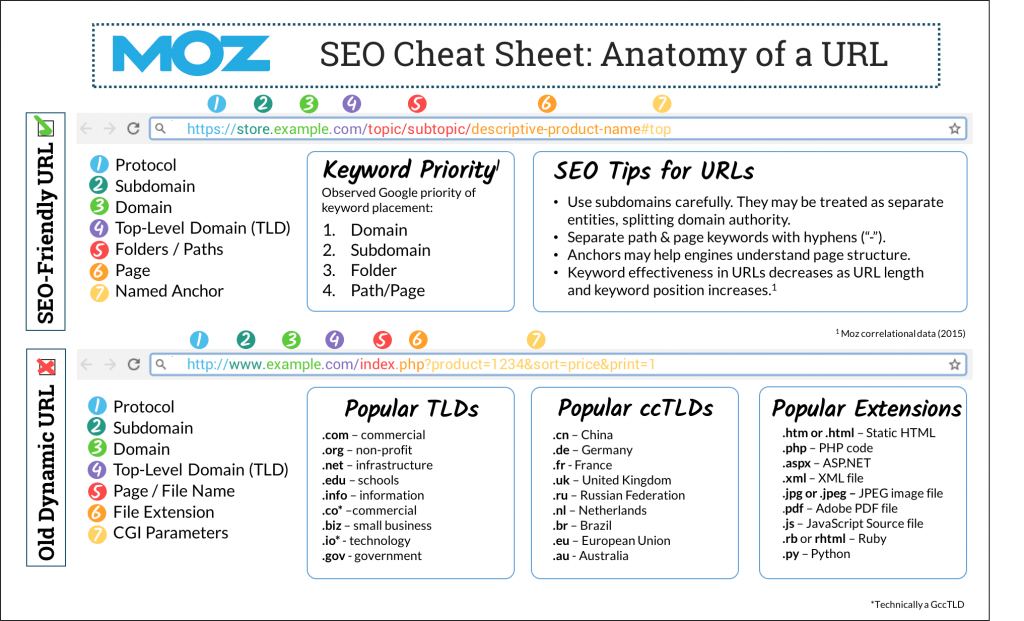If you’re new to the world of online marketing, you might be wondering, ‘what is on-page SEO’?
Fortunately, the answer is all in the name – you just need to know SEO stands for search engine optimisation! Now you know the SEO definition, on-page SEO is the strategy of taking web page content, optimising it via various different techniques, and ensuring it’s more appealing for both users and search engines.
As mentioned, several different techniques need to be utilised for effective on-page SEO. This is where the process becomes a little more complicated and why people have to turn to guides like this one for answers. Important on page SEO factors include optimising content, title tags, URLs, and internal links. The more these are refined, the more the likes of Google will appreciate the work you’ve done.
Keep in mind that on-page SEO is a different beast compared to its off-page counterpart. The on page SEO components are different. Off page elements to consider for SEO involves optimisation techniques that are located on external platforms away from your website. Think about the likes of social signals, posting guest blogs, commenting on forums, backlinks on other sites, etc.
With that out of the way, let’s delve into on-page SEO in more detail!
What’s the importance of on-page SEO?
If you don’t take into consideration on-page SEO, your website will fail to make an impression on Google. It will land way short of the all-important first page of search results, and this massively impacts the amount of organic traffic you’ll gain. Did you know that the first five organic results on Google account for more than two-thirds of all clicks?
So to say that on-page SEO is important is an understatement. It’s an essential component for the online success of your business.
As a result, you need to optimise your web pages as much as possible. Now the basis for this is with the use of relevant keywords. However, there’s much more to on-page SEO than simply cramming keywords into your page’s content.
This leads us to the next portion of this guide.

What are the biggest elements of on-page SEO?
What does on-page SEO include, exactly? The answer is simple: a lot of different elements. The SEO world is a complex one, and this point is only magnified by the fact Google regularly changes the rules as to what search tactics work best. This is why many established businesses will enlist a marketing agency to run managed SEO campaigns. This way, they know everything is covered, and no aspects are being overlooked.
Nevertheless, there are numerous factors you can begin to consider right away. If you want to know what are the main elements of on-page SEO optimisation then you are in the right place! The main elements of on-page SEO to think about when it comes to optimising your website pages include:
Content Optimisation
The content of the page is, of course, the most integral component. This is the reason why a user turns up to your website. If you craft high-quality content that appeals to users, search engines will notice this and rank the page accordingly. Good content is also linkable, which means other sites will reference it within their own offerings.
If you’re wondering how to optimise your content, here are a few pointers:
- The bigger, the better. Google appreciates content that is packed with information, so it pays off to cram in as many words as possible. Try and aim for 1,000 words, at least.
- Avoid fluff. In relation to the previous point, don’t simply add words for the sake of it. Google likes big content, yes, but not when it’s fluffed up. Your page will only be penalised for this type of tactic.
- Natural inclusion of keywords. Even if you have a long list of keywords, you have to try and incorporate these in a natural manner. Can you spot the keywords on this very page? It’s unlikely because they have been added in a way that the flow of the content isn’t harmed. As mentioned in the previous point, Google does not like fluff. It also doesn’t like unnatural keyword stuffing. Additional keywords to sprinkle around the page are important when it comes to SEO on page elements, but not when done clumsily.
- Break it up. The longer a user stays on your page, the more Google will reward your site. Rather than giving them an unappealing wall of text, break things up with headers, images, videos, lists, highlighted quotes, etc. This makes the content scannable, which is likely to keep users around and consume what you have to offer.
Title tag
The title tag is the headline that search engines use for your pages. This means that, when people find your page after a relevant search result, this is the title they will first see.
There are several points to consider when putting together an effective title tag. Using your target keyword is a must. It’s also important the title is compelling enough to appeal to potential visitors but is one important component of understanding the answer to the question, how does SEO work on Google?
Meta description
Along with the title tag, the search engine results for your page will tend to include the meta description. This description is a HTML code that intends to provide a brief, informative description of your page. Add suitable keywords to the meta description, make it short and snappy, and it’ll appeal to both users and search engines.
Internal links
Anyone who knows anything about online marketing recognises the importance of link building. Yet rather than only focusing on external links that point to your website, it’s also essential you utilise internal links.
For example, look at the link in the previous paragraph. This is linking to a different part of our website. Why? Well, these internal links, ones that direct to other pages on your website, can have a significant impact on your SEO ranking. Not only do they assist Google with identifying pages on your site, but internal links also provide authority to these pages.
For something that’s so easy to do, it can make a big difference.

Image optimisation
It’s not just a case of posting pretty, eye-catching images on your page. While this helps retain users on your site, the visual quality of the image is not a factor for search engines. This is where optimisation comes into play.
One way of optimising an image is with its filename. Rather than keeping it as a generic term like “picture1.jpg”, you should use a descriptive filename. Think of something like “image-optimisation-example”. This helps to detail the image with a relevant keyword – and it’s already been established how important keywords are with Google! You can also utilise the alt text to further describe the image contents.
URL structure
It might seem like an insignificant facet of on-page SEO, but the URL structure can play a large supporting role in placing high on Google.

First of all, you want to refine the general URL structure of each page. There’s no doubt you have previously come across a URL that’s a random mess like this:
Mywebsite.co.uk/skdoo-330djsjk91900
It goes without saying, but this URL isn’t helping anyone – particularly the search engines that are crawling for information about your website. They won’t be able to decipher what the page is about from a random mix of letters, numbers, and symbols. Instead, you want a URL that fits in your main keyword and is easy to understand. Consider this example:
Mywebsite.co.uk/url-structure-optimisation
Yet, it’s not simply a case of refining the URL for each page. You also have to ensure the category hierarchy is also in-sync with the URL, as the following shows:
Mywebsite.co.uk/online-marketing/url-structure-optimisation
With this hierarchy in place, the search engines have a greater chance of deducing what the page is actually about. This, obviously, is good news for your website’s chances of ranking high in search results. Correct URL structure applies if you are working on on page SEO UK strategies or elsewhere.
If you need help with any of your on-page or off-page SEO efforts, then contact Click Intelligence today! Our friendly team is always on hand to help!
Additional Related Articles
- https://www.clickintelligence.co.uk/what-you-need-to-know-about-accessibility-seo/
- https://www.clickintelligence.co.uk/what-is-robots-txt/
- https://www.clickintelligence.co.uk/free-website-migration-checklist/
- https://www.clickintelligence.co.uk/free-seo-audit-checklist/
- https://www.clickintelligence.co.uk/what-is-xml-sitemap/
- https://www.clickintelligence.co.uk/reasons-audit-website-immediately/
- https://www.clickintelligence.co.uk/seo-tips-you-cant-miss/
SEO and On-page SEO FAQs
If you’re wondering, in general, how does SEO work, then you first need to understand what SEO stands for. To define SEO means search engine optimisation. SEO is the process of getting traffic from free and organic search results in search engine results pages. It aims to improve your website’s position on results pages so more people see it.
SEO works by employing many different techniques, including identifying and using relevant keywords, creating high-quality content that is optimised for search engines and users, using relevant links from high authority websites, tracking results, etc.
Now you know what SEO is and how it works, let’s move on to the next question!
As mentioned above, the easiest way to check your Google ranking is to use an online tool to check Google position UK. This is a great starting point to improving your rankings, as it will let you know which keywords to use to drive traffic to your site.
Leading on from the question, “what is SEO and why is it important?”, its purpose is to boost your visibility on search engine results pages. Getting your website seen before your competitors can really put you ahead in the SEO race.
You may question, how does search work? To become savvy with this, you need to understand how search engines work. Understanding this is vital to ranking highly and helps inform your SEO approach. Search engines crawl the web to find pages and information, then index these pages by analysing their text, images, and videos before storing them in the Google index. Finally, search engines present results in results pages. To ensure your website ranks highly, you must follow SEO best practices.
To know how to do SEO for a website, it’s best to contact experts like those in the team here at Click Intelligence. We know how SEO works and can help take your on-page SEO efforts to the next level, so you get the results you want.
These are some of the vital onpage SEO elements we can help you with that will get your page to the top of search engine results:
- Relevant keyword research
- Appropriate use of keywords across your pages
- Hyperlinking your existing content
- Writing high-quality content that is updated regularly
- Optimising your images
- Technical SEO
- Looking at page speeds and mobile access
The most important elements of on-page SEO have been addressed in this helpful guide. Before embarking on any on-page optimisation work, ensure you look at the following areas:
- Ensuring your content is fully optimised
- Ensuring you have relevant title tags and meta descriptions
- Ensuring you are using internal linking to other relevant pages on your website
- Ensuring all images are fully optimised with the appropriate tags
- Ensuring your URL structure is easy for search engines to understand
Off-page SEO refers to all activities away from your website that help increase your ranking on search engine results pages. It relates to tactics that don’t involve you publishing content on your own website. Some of the most used off-page SEO techniques include:
- Link building (generating high-quality backlinks to your website)
- Social media
- Content marketing
- Reviews
- And more
